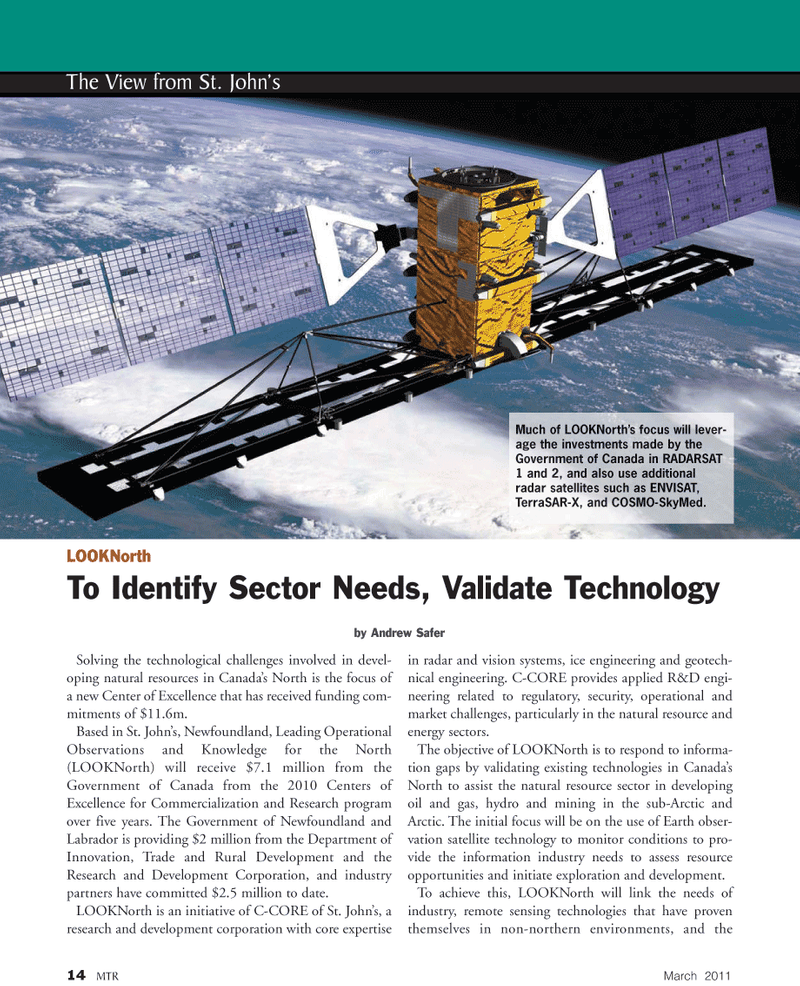
Page 14: of Marine Technology Magazine (March 2011)
Subsea Vehicles: AUV, ROV, UUV Annual
Read this page in Pdf, Flash or Html5 edition of March 2011 Marine Technology Magazine
The View from St. John’s
Solving the technological challenges involved in devel- oping natural resources in Canada’s North is the focus of a new Center of Excellence that has received funding com- mitments of $11.6m.
Based in St. John’s, Newfoundland, Leading Operational
Observations and Knowledge for the North (LOOKNorth) will receive $7.1 million from the
Government of Canada from the 2010 Centers of
Excellence for Commercialization and Research program over five years. The Government of Newfoundland and
Labrador is providing $2 million from the Department of
Innovation, Trade and Rural Development and the
Research and Development Corporation, and industry partners have committed $2.5 million to date.
LOOKNorth is an initiative of C-CORE of St. John’s, a research and development corporation with core expertise in radar and vision systems, ice engineering and geotech- nical engineering. C-CORE provides applied R&D engi- neering related to regulatory, security, operational and market challenges, particularly in the natural resource and energy sectors.
The objective of LOOKNorth is to respond to informa- tion gaps by validating existing technologies in Canada’s
North to assist the natural resource sector in developing oil and gas, hydro and mining in the sub-Arctic and
Arctic. The initial focus will be on the use of Earth obser- vation satellite technology to monitor conditions to pro- vide the information industry needs to assess resource opportunities and initiate exploration and development.
To achieve this, LOOKNorth will link the needs of industry, remote sensing technologies that have proven themselves in non-northern environments, and the
LOOKNorth
To Identify Sector Needs, Validate Technology by Andrew Safer 14 MTR March 2011
Much of LOOKNorth’s focus will lever- age the investments made by the
Government of Canada in RADARSAT 1 and 2, and also use additional radar satellites such as ENVISAT,
TerraSAR-X, and COSMO-SkyMed.

 13
13

 15
15
